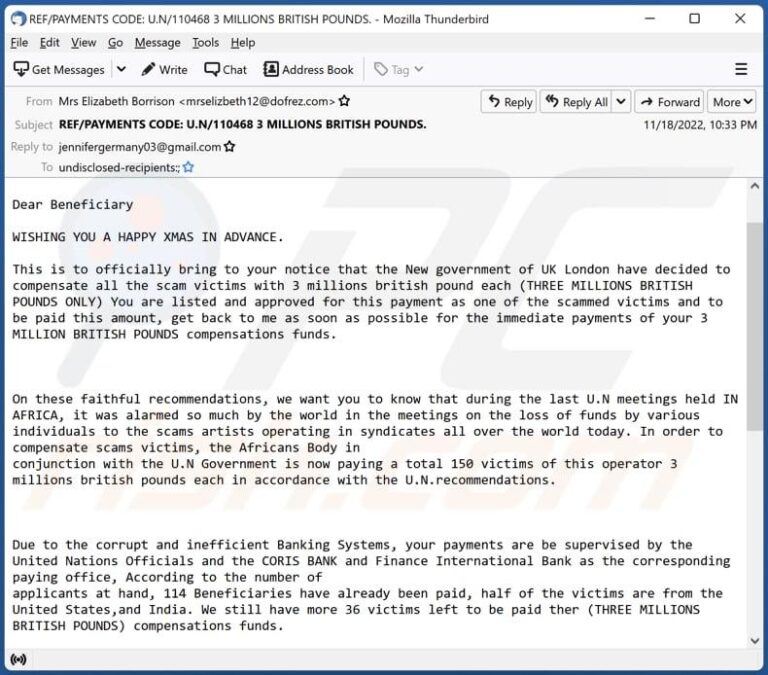In the evolving landscape of global anti-corruption enforcement, the United Kingdom continues to sharpen its focus on the restitution of victim states harmed by multinational bribery schemes. White & Case LLP explores the UK’s current stance on compensation mechanisms, spotlighting how legal frameworks and enforcement agencies are increasingly prioritizing payback for kickbacks. As regulators intensify efforts to tackle cross-border bribery, this article delves into the practical and legal challenges surrounding the compensation of affected countries, shedding light on the UK’s pivotal role in shaping international accountability and recovery strategies.
Payback for Kickbacks UK Legal Framework on Compensation in Multinational Bribery Cases
The UK’s legal framework on compensation in the context of multinational bribery cases has taken significant strides to ensure that victim states receive reparations for losses stemming from corrupt practices. Central to this approach is the enforcement of anti-bribery provisions under the UK Bribery Act 2010, which empowers courts to recognize and facilitate compensation claims made by foreign states or entities directly harmed by illicit kickbacks. This framework emphasizes the importance of cross-border cooperation, allowing victim states to seek redress through UK judicial systems, thus reinforcing accountability and transparency at an international scale.
Key features of the UK’s compensation regime include:
- Multi-jurisdictional Coordination: Collaboration between regulators, prosecutors, and civil courts across different countries to streamline recovery processes.
- Recognition of Indirect Harm: The legal provisions acknowledge not only direct financial damage but also broader socio-economic impacts on victim states.
- Restitution Mechanisms: Structured frameworks for asset recovery and distribution, ensuring funds are returned effectively to affected parties.
| Aspect | UK Legal Position | Impact on Victim States |
|---|---|---|
| Jurisdiction | Broad extraterritorial reach | Enables claims from foreign entities |
| Compensation Type | Both compensatory and punitive | Restores financial and reputational harm |
| Enforcement | Integrated with international cooperation | Strengthens victim state recovery efforts |
Challenges Faced by Victim States Seeking Redress in Complex International Corruption Disputes
Victim states grappling with international corruption cases often encounter a labyrinth of legal and diplomatic barriers that hinder effective redress. The complexity arises not only from the cross-jurisdictional nature of bribery schemes but also from the inconsistent application of compensation mechanisms worldwide. Despite growing global efforts to clamp down on corruption, the absence of a unified framework means victim states must navigate divergent legal standards and procedural nuances across multiple countries, each with their own enforcement priorities and political considerations. This patchwork approach frequently results in protracted litigation and limited recovery for those harmed, disproportionately affecting developing nations where resources for legal battles are scarce.
Compounding these challenges are:
- Proof of harm: Establishing direct financial damage caused by bribery often requires extensive forensic accounting and evidence gathering that stretches across borders.
- Jurisdictional conflicts: Conflicting claims over where proceedings should be held can delay justice and dilute enforcement efforts.
- Political interference: Governments implicated or invested in corruption allegations may obstruct or manipulate proceedings to avoid accountability.
- Asset recovery hurdles: Locating, freezing, and repatriating illicit gains demands multilateral cooperation that is complex and often slow-moving.
| Challenge | Impact on Victim States | Typical Duration |
|---|---|---|
| Cross-border Evidence Collection | Delays & incomplete proof | 12-36 months |
| Legal Jurisdiction Disputes | Conflicting rulings, duplicate cases | 18-48 months |
| Political Pressure | Interference & case derailment | Ongoing |
| Asset Repatriation | Limited funds recovered | 24-60 months |
Strategic Recommendations for Strengthening Victim Compensation Mechanisms in UK Bribery Enforcement
To enhance the efficacy of victim compensation mechanisms within the UK’s bribery enforcement framework, it is essential to adopt a multifaceted approach that prioritizes transparency, accountability, and cross-border cooperation. First and foremost, establishing dedicated compensation funds managed by independent bodies can accelerate the restitution process, ensuring that affected states and communities receive timely reparations. Additionally, embedding mandatory victim impact assessments into prosecutorial guidelines will provide courts with comprehensive insights necessary for calibrating financial penalties and directing recovered assets. This holistic perspective will empower enforcement agencies to better align sanctions with the scale of harm caused, thus deterring corporate malfeasance on a global scale.
- Introduction of binding international frameworks to streamline asset recovery and repatriation in multinational bribery cases
- Enhancement of victim identification protocols through collaborative data-sharing agreements between domestic authorities and foreign governments
- Incorporation of restorative justice principles by involving victim states in settlement negotiations to tailor compensation solutions
- Investment in capacity-building programs for judicial and law enforcement bodies to better evaluate and manage compensation claims
Moreover, strengthening legislative provisions to facilitate frozen asset utilization represents a critical avenue for improving compensation outcomes. Allowing courts greater discretion to allocate confiscated funds directly to victim states would reduce bureaucratic delays and discourage illicit capital flight. To illustrate the potential impact, the table below compares approaches to victim compensation across select jurisdictions, highlighting the UK’s room for strategic refinement.
| Jurisdiction | Compensation Fund | Victim Involvement | Asset Repatriation Speed |
|---|---|---|---|
| UK | Proposed | Limited | Moderate |
| US | Established | High | Fast |
| France | Established | Moderate | Fast |
| Germany | Proposed | Moderate | Moderate |
The Way Forward
As multinational bribery cases continue to capture global attention, the UK’s evolving stance on compensating victim states marks a significant development in the pursuit of justice and accountability. By enhancing mechanisms for payback from illicit kickbacks, the UK is setting a precedent that may influence international legal frameworks and corporate governance standards. For governments, corporations, and legal practitioners alike, understanding this position is crucial as efforts intensify to ensure that the proceeds of corruption are effectively returned to the communities and countries harmed. White & Case LLP remains at the forefront of this complex legal terrain, providing critical insights into the implications and practicalities of these emerging compensation strategies.




